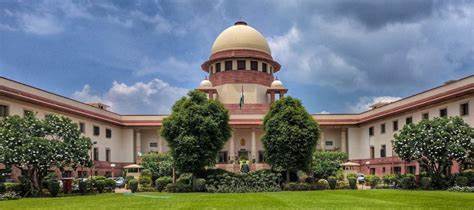Should Grounds Of Arrest Be Mandatorily Supplied ‘Prior’ To Arrest In Every Case? Supreme Court Reserves Orders In Worli Hit & Run Case
The Supreme Court has reserved its order on a plea concerning the Worli hit-and-run case. The core issue under consideration is whether providing the grounds of arrest to an accused person prior to their arrest is mandatory in all cases, including those arising from Indian Penal Code ( Bhartiya Nyaya Sanhita).
Here’s a breakdown of the key aspects discussed during the hearing:
The Petitioner’s Argument: Mihir Shah, the main accused in the Worli hit-and-run case, challenged a Bombay High Court order that denied his release based on an allegedly illegal arrest. His counsel argued that the grounds of arrest were not furnished to him, even after 10 months of custody, which violates his rights. They contended that while there might be exceptions in cases of “hot pursuit,” this shouldn’t apply to serious offenses like murder.
The State’s Argument: The counsel for the State of Maharashtra highlighted the exigencies of the case, stating that the accused was absconding and was apprehended by a police station other than the one investigating the incident. They pointed out that the arrest memo mentioned the father’s name, and this information was communicated to him over the phone.
The Amicus Curiae’s View: The Amicus Curiae (friend of the court) suggested that while the current legal position mandates that grounds of arrest should be furnished within 24 hours of arrest, it doesn’t explicitly require this to be in writing or prior to the arrest itself. They argued that in situations like chasing a suspect, the immediate priority is apprehension, with the grounds being explained later at the police station. However, they also saw no reason why the grounds shouldn’t be provided in writing before the remand hearing.
Supreme Court’s Observations: Justice Gavai indicated the court’s inclination to clarify the legal position on this matter. The bench questioned why, even after arrest, the grounds shouldn’t be communicated within 24 hours, acknowledging that exceptional circumstances might exist. They also expressed concern about accused individuals potentially misusing observations on this issue to bypass normal legal remedies.
In summary, the Supreme Court is considering whether the constitutional and statutory rights of an arrested person necessitate the mandatory supply of written grounds of arrest before or immediately at the time of arrest in all cases. The outcome of this reserved order in the context of the Worli hit-and-run case could have significant implications for arrest procedures in India.
Regarding the Worli Hit & Run Case:
The case involves a tragic incident where a BMW allegedly driven by Mihir Shah hit a scooter on July 7, 2024, resulting in the death of a 45-year-old woman, Kaveri Nakhwa, and injuries to her husband. Mihir Shah is the son of a Shiv Sena leader. He was arrested a few days after the incident, and a chargesheet has been filed against him and others. He and his driver had earlier approached the Bombay High Court claiming their arrest was illegal due to the non-supply of the grounds of arrest, but their plea was rejected. They then approached the Supreme Court.
